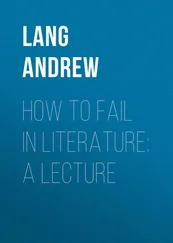Probably about 1390, and at the suggestion of Richard II himself, Gower abandoned unmitigated sermonizing in verse: renounced the ambition to reform the world by rhyme, and mingled, as he says, pleasure with morality in the endless "Lover's Confession," the work on which his reputation as an English poet rests. He professes his desire to make a work for England's sake, and, in early versions, declares that Richard II called him into his barge on the Thames, and set him to the task. It was to be "some new thing" readable by his Majesty. After a moral prologue Gower tells how he met Venus, in May of course, and how she gave him her chaplain, Genius, as a confessor. To Genius Gower makes his confessions as a lover, and Genius preaches to him, illustrating every homily with a tale. It is by the tales, and by some pretty passages descriptive of true love, that the poem survives. Most of the stories are borrowed from Roman literature. The Greek reader is surprised to find that the Sirens had fishes' tails, a fact unknown to Homer, or to Greek art; which usually represented them as birds with the heads of women. The Trojan horse is of bronze, whereas it was notoriously of wood. The tale of Alboin and Rosamund, and the cup made of her father's skull, is told pleasantly, but the truly tragic situation is slurred over and lost; and the tale of Hercules and Deianira, and the fatal garment of Nessus the Centaur, is also far from worthy of the tragic Greet theme; of the pity and terror of the legend.
Perhaps Shakespeare admired Gower's "Pyramus and Thisbe," which the Athenian craftsmen dramatize in "A Midsummer Night's Dream". The "Jason and Medea" is one of the best tales; but Gower did not know the Greek version by Apollonius Rhodius, or the "Medea" of Euripides; and his own genius rises to no such picture of a maiden's love as Apollonius draws, to no such tragic passion as Euripides conceives, while he has little or none of the humour of Chaucer.
None the less here was a book of many thousand lines, full of the material of old romance, mediaeval or classical: here the verse ran easily, copiously, and sweetly, for Gower was a master of the rhymed octosyllabic couplets, through his knowledge of and practice in versification both French and English. Indeed his style, soon to be lost by English versifiers, is his main virtue.
At last he confesses to Venus that he knows not the true nature of Love. She gives him a black rosary of beads—like that which Chaucer holds in his portrait,—with the motto in gold, por reposer , "Take thy rest". He is to write of Love no more, no more to come to Venus's Court, so, in 1398, the foolish veteran did make love, and married Agnes Groundolf! He survived this unseasonable wooing for ten years, when Agnes came into his property.
The reputation of Gower, for long, was very high; people spoke of Chaucer and Gower as we speak of Browning and Tennyson, or of Shelley and Keats. But no longer with Chaucer is Gower "equalled in renown," and his most enduring monument is Shakespeare's introduction of him in "Pericles, Prince of Tyre".
1.Calthrops, used at Bannockburn, were iron sets of spikes; Joan of Arc was wounded by a calthrop at the siege of Orleans.
2.Professor Manley of Chicago, in "Cambridge History of English Literature".
3.It was lost, but, in 1895, when Mr. G. C. Macaulay was editing Gower's enormous English poem, "Confessio Amantis" ("The Lover's Confession") he remarked to Mr. Jenkinson, Librarian of the Cambridge University Library, that if ever Gower's French "Speculum Meditantis" ("The Contemplative Man's Mirror") were found, it would probably be under the Latin name, "Speculum Hominis" ("Man's Mirror"). Now Mr. Jenkinson had just bought and presented to the Library, a French manuscript, "Mirour de l'Omme," "Man's Mirror". This was proved to be Gower's lost French poem. It had lain in some farm-house, in 1745, and had been scribbled on by a rustic hand, while a manuscript of the Ballades had been given, in 1656, by a very old man, Charles Gedde, of St. Andrews, to Lord Fairfax; at the time of the English conquest of Scotland by Cromwell.
CHAPTER XI.
THE SUCCESSORS OF CHAUCER.
Table of Contents
After Chaucer and Gower, English poets wandered back into the wilderness. They are most valuable to students of the development of the language, they were popular in their own time and for more than a century later. Specialists find in them some literary merits, oases in the sandy desert, but it would be false to say that they are generally entertaining and attractive.
John Lydgate, the Monk of St. Edmundsbury, would have obliged us had he written prose Memoirs of his own life, for he came in contact with some very interesting persons, and knew London and Paris as well as his cloister. Born (1370) at Lydgate near Newmarket (where good drink was hardly to be come at, he tells us), he was, before the age of 15, received into the great Edmondsbury monastery school, where he was a reluctant pupil, and, later, a not very willing monk. He proceeded to Oxford, it is thought to Gloucester Hall, now Worcester College, and, by 1397, was a priest in full orders. He speaks of Chaucer as his Master; but probably he means his master in the spirit: probably he never sat at the feet of the great poet.
In 1423 Lydgate was made prior of Hatfield Broadoak. In 1426 he was in Paris, and, by order of the Earl of Warwick, the cruel jailer of Jeanne d'Arc, he translated a French poetical pedigree by Laurence Callot, a French clerk in English service. Laurence is notorious for having called the Bishop of Beauvais a traitor, when he accepted the abjuration of Jeanne d'Arc (May, 1431), and for being very busy in the tumult which then arose. Lydgate returned to his cloister at Bury in 1434, and we last hear of him, in connexion with a pension which he held, in 1446.
The dates of his poems are not certainly known, as a rule. "The Flower of Curtesie," "The Black Knight," and "The Temple of Glass," may be between 1400 and 1403. The "Troy Book," made from Dares, Dictys, Benoît de Sainte-Maure, and, mainly Guido de Colonna, is of monstrous length, and is dated 1412-1420. This poem has some fine passages in which Lydgate, for example, when describing the penitence of Helen, seems to be translating the actual words of the Iliad. The "Story of Thebes" followed (1420), then came "The Falls of Princes," and a translation of Deguileville's "Pilgrimage of Human Life," made for the Earl of Salisbury. "The Legend of St. Edmund" was written for the devout Henry VI; the date of "Reason and Sensuality" is earlier (1406-1408).
About forty works are attributed to Lydgate, all, or almost all, being marked by "his curious flatness". His lines have, for the ordinary mind, the unpleasant peculiarity that you may read many of them several times before you discover, if you ever do, how he meant them to be scanned. It is not to be found out when he meant the final e to be sounded, and when he did not. His poems may have been badly copied, or badly printed, or both, but the bewildering result remains. When we add that Lydgate is usually a translator, and is always a copyist of all the old formulæ of spring and dreams, and that he is as prolix as an Indian epic, it must be plain that he cannot be said to hold a high place in living literature. "The Book of the Duchess," a thing of Chaucer's immaturity, is not one that a young poet of the next generation would sedulously ape, yet Lydgate imitated it in "The Black Knight".
The best-known piece of Lydgate is a short satiric poem, "London Lickpenny," describing the misadventures of a poor countryman who finds that in London he can get nothing, neither law, nor food, nor any other commodity—for nothing. His hood is stolen in the crowd.
Occleve is not merely a less voluminous Lydgate. He is a character, or assumes to be a character not unlike the French poet, Francois Villon, but with little of Villon's genius. Occleve was born about 1368; about 1387 he got a little post in the Office of the Privy Seal; in 1406, in a poem "La Male Règle," he petitions for payment of a pension: he has wasted his youth, his health is lost, and no wonder,
Читать дальше












